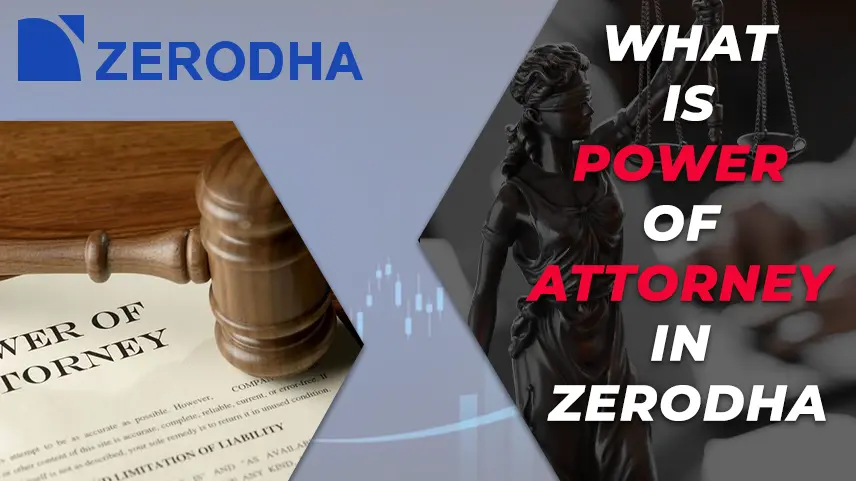What is Power of Attorney in Zerodha
Power of Attorney (POA) in Zerodha is a legal document that allows a person (the "principal") to appoint someone else (the "agent" or "attorney-in-fact") to act on their behalf in financial matters. In the context of Zerodha, this means giving someone the ability to manage your Zerodha trading account, make trades, and access your account information. The POA must be submitted to Zerodha for approval and is typically used when the account holder is unable to manage their own account for reasons such as illness, travel, or work. It allows someone else to manage your account without having to take physical possession of your securities. Zerodha requires a POA to be signed by the account holder to enable the authorization of a representative to operate the account.

Different types of POA?
Two types of Power of Attorney POA
1. General POA: This type of POA gives the attorney-in-fact broad powers to act on behalf of the principal, including conducting financial transactions, buying and selling property, and entering into contracts.
2. Limited POA: This type of POA gives the attorney-in-fact specific, limited powers to act on behalf of the principal. This type of POA is often used in specific situations, such as a real estate transaction or a financial transaction, where the principal cannot be present to sign necessary documents.
Use of Power of Attorney (POA) in Zerodha
The use of a Power of Attorney (POA) is to give someone else the legal authority to act on your behalf in financial and legal matters. Some common uses of POA include:
• Trading stocks or other securities in a brokerage account
• Managing financial and banking transactions
• Buying or selling property on behalf of the principal
• Signing legal documents or contracts
• Representing the principal in legal proceedings
• Dealing with tax matters
• Making health care decisions for the principal if they are unable to do so.
POA can be especially useful for individuals who are unable to handle their own financial or legal affairs, such as elderly individuals, people with disabilities, or individuals who are traveling or otherwise unable to attend to their own affairs. By granting POA, an individual can ensure that their financial and legal affairs are managed by someone they trust, even in their absence.
Features of Power of Attorney POA
Features of a Power of Attorney (POA) include:
1. Grant of Authority: The POA document specifies the powers that the attorney-in-fact has been granted, such as the ability to trade stocks, sign contracts, or make financial transactions on behalf of the principal.
2. Durability: POA can be either "durable" or "non-durable". A durable POA remains in effect even if the principal becomes incapacitated, while a non-durable POA is automatically terminated if the principal becomes incapacitated.
3. Revocation: The principal has the right to revoke the POA at any time, as long as they have the capacity to do so.
4. Naming an Attorney-in-Fact: The POA document names the individual or individuals who will act as the attorney-in-fact.
5. Notarization: Most POA documents must be notarized to be considered legally valid.
6. Specificity: The POA should specify the scope of the attorney-in-fact's powers, such as the types of transactions that they are authorized to make and any restrictions on their authority.
7. Compliance with State Laws: POA must comply with the laws of the state in which they are executed, so it is important to use a POA that is compliant with the laws of the state in which the principal resides.

0 comments